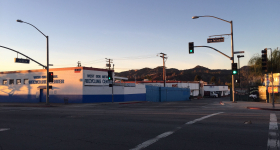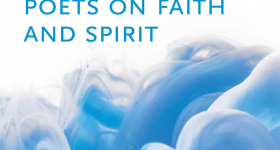Recently on Zoom I was able to meet with Vanessa Hua, whose forthcoming book Forbidden City (Ballantine Books, May 10) follows the moral and intellectual awakening of Mei, a young teenager who leaves her rural life to join Mao Zedong's Cultural Revolution. Hua, who has written two previous acclaimed novels, explores the role of young women who surrounded Mao during his rise in China during the 1960s. As someone who has spent time in China, I've long been fascinated by the Cultural Revolution, so her recent work of historical fiction served as motivation for me to speak with her. I am also a longtime follower of Hua's writing for the San Francisco Chronicle. We covered a range of topics including sex, politics, empathy and advice for aspiring novelists from the author.
This interview has been edited for length and clarity.
Forbidden City covers politically tumultuous years in China. How did you decide to capture these through a coming-of-age story of a teenager?
Years ago, I saw a documentary, and up pops a black-and-white photo of Mao surrounded by all these young women. I wondered what the deal was and started to explore. I discovered, through the Chairman's physician’s memoir, that Mao, who was a fan of ballroom dancing, had these special troupes of young women. Most of the dancers were not part of any historical record and don’t even merit a footnote, yet in their own way could have influenced and shaped the course of history. Those who served Mao knew him closely in a way that very few did. They also had influence — some of them became his nurses or confidential clerks and communicated on his behalf; they read his correspondence or translated for him when his speech was garbled. Yet they don’t make it into any of the stories of the time. I wondered what it was like for someone so young to spend many of her formative years serving someone like Mao, who was powerful but also isolated and lonely, and how he might have been swayed by them. So that’s where Forbidden City came from — my novel tells the story of one of these young women and makes the political personal.
I saw a description of Mei as a morally ambiguous character. Forbidden City sings with empathy for many morally ambiguous characters — for Mei, for her parents, for Teacher Fan (who is my favorite) and also for the Chairman Mao. Was that a literary device to offer a new point of view into a fraught time in history?
Thank you, I love Teacher Fan too! For me, even outside of this novel, I've always approached my fiction with an intent to show that all characters are complicated, that as humans, we hold multitudes within us and that sometimes people act in ways that are at cross–purposes to who they think they are. These characters do what they think they need to do to survive at a very tense political and personal time. And my hope with the novel is to portray characters who are fully human and that means including their flaws and complexities. This is especially true of the Chairman — he's an icon in a true sense of the word. His portraits hang in people's homes and at the heart of Tiananmen Square. So the challenge was, how do you move from that endlessly replicated image to someone who is fully alive?
You’ve asked about how to present a different time in history. For me, it came down to describing shared moments. I did not live in 1960s China, of course, but with both Mei and the Chairman, they dance and also swim and those are two things I do, too. I learned social dancing in college — it was one of the most popular classes on campus — and I swim multiple times a week. I could bring them alive in a physical and intimate way through those shared experiences; I tried to embody the characters and present them as wholly human.
Talk to me about the title. It’s a real place, isn’t it? Tell me how this became the title of your novel.
The Forbidden City that I visited, and many tourists have visited since 1925, is the site of the former imperial palace turned into a museum. But next door, Zhongnanhai, the former imperial gardens — what I call the Lake Palaces in the novel — still serves as the central headquarters in China. And during the time of the novel in 1965 and 1966, that's where political leaders lived. And so, in a sense, Zhongnanhai, which is not open to the public, is the new Forbidden City.
But Forbidden City also stands in as a metaphor for the Chairman himself, for Mei who is circling and circling him trying to find a way in. In the novel, he is the real Forbidden City.
This is the third title for the book. Rejects include New Skies, Without Heaven, and Third Daughter. My editor suggested this title and at first, I was concerned that it might be confusing, because the book is mostly set in the Lake Palaces and not what’s formally called the Forbidden City in Beijing, but then I understood how powerful the metaphor is and how evocative this title is.
Mei dominates the action of the novel. In the first third of the novel, her motivations are mostly that of a self-absorbed teenager. Yet, in the final third of the novel, she has new political awareness and power. What causes her transformation?
Great question. Thank you for asking. This is one of the main reasons why I chose a retrospective narrator. Even though Mei more fully admits her disillusionment with the Chairman and all he stands for towards the last part of the novel, the hints of her transformation are there right from the start.
In the beginning, Mei is just a young girl dreaming of a bigger life by becoming a model revolutionary. But when she meets this great leader whom she has revered for so long, she sees firsthand how her ideals vary from reality. For a long time in the novel, Mei tries to push away her realizations and dismisses most of her feelings, but by the time matters come to a head, she realizes that she can't reconcile what she is doing, and she must make a break for it.
How was it like to send this book out in the time of another massive global turmoil?
Right?! And at a time when relations with China are probably as low as they've ever been? *Laughs*
*Laughs* Absolutely! And, another megalomaniac is ascending power? Yeah, let’s talk about that. How is it to send this book out into the world today?
So, I think I should probably explain a little bit about the history of writing the book. It’s actually the first book I wrote, but the third book I'm publishing. I started this project back in 2007. It came close to selling after I graduated with my MFA, but didn't, and it was devastating. But then I worked on other books that ended up getting published before this one: Deceit and Other Possibilities and A River of Stars. But even amidst those other projects, I kept returning to this manuscript about Mei. In 2016, when A River of Stars sold, it was a two book deal; the editor bought Forbidden City on the strength of the first 50 pages.
I've rewritten this book so many times. And a lot of history, some personal and some global, happened in the meantime. My father passed away, I became the mother of twins, we saw the rise of the #metoo movement, and the pandemic. All these things don't appear directly in the book but nonetheless shaped who I was as a writer and the way I thought about the world and the way I thought about loneliness, separation and distance from family. That’s how time and turmoil has left its imprint on the book.
The other way is the supply chain. You may have seen that I posted online that my launch date has been delayed twice and it’s now in May. Again, as a writer, I have no control on how larger forces will be at work and may impact me or my novel, so the best I can do is to just write the best novel I can and hope it will land when it is meant to be. That’s how I think of it, anyway.
What’s the advice you would give an aspiring novelist now? Especially a female novelist of color?
My main advice is to seek out community. This journey is a long one, and there are inevitably going to be lots of dead-ends and wrong turns and many rejections. It is so important to have people who have your back, and you have their backs. With a community, you can commiserate when things happen that are not so great, because as a writer, there will be many of these moments. And then when it’s time to celebrate, it'll be all the sweeter with a group who care for you and understand what you are trying to do. I think there really is power in solidarity. So, to the extent that you’re able to make room for that in your life, in addition to your writing, I would truly recommend that.










Comments